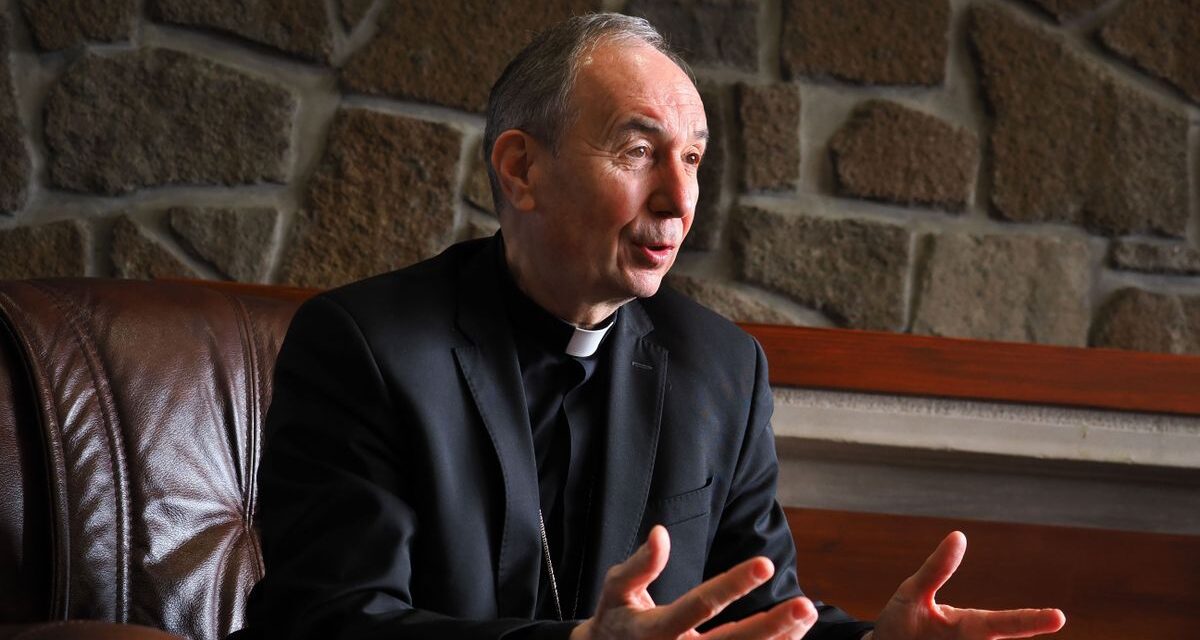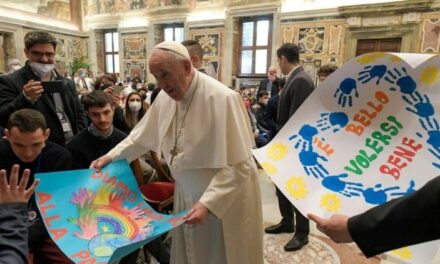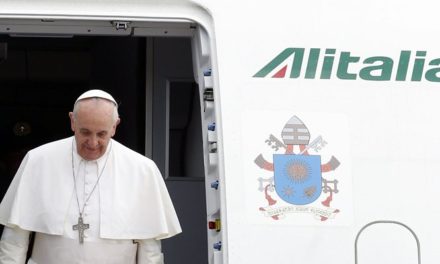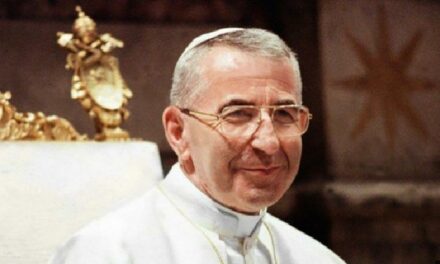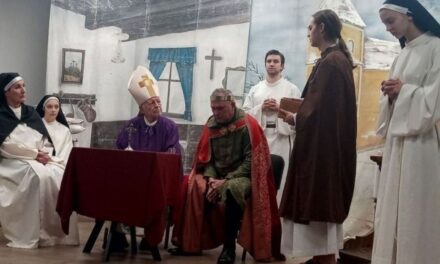Vigilance is needed regarding the evaluation of phenomena, and it is necessary to reach the distinction in the Holy Spirit, György Udvardy stated about the ideologies flowing in from the West.
In his Easter interview, the archbishop of Veszprém pointed out: the horror of war takes away hope from many people, human dignity disappears. Who has the opportunity, the chance to celebrate at this time? - he asked the question, then pointed out: the true message of Easter can be expressed precisely in this.
In Hungary, Easter is basically closely surrounded by many family customs and holiday fixations, which is why many people no longer place so much emphasis on the Christian roots of the holiday, a kind of secularization can be observed. How common do you think this is in our country?
Regarding holidays and celebrations - whether it is a religious holiday or a social holiday - in our society and communities, a multi-layered interpretation can be observed. The world of everyday life, public discourse, interpretation according to public life, interpretation according to cultural traditions, folk customs and religious traditions.
It is an undoubted fact that a layer of "new religions" or so-called customs also appeared. We can think here of those "holidays" that arise as a result of the profit-oriented efforts of trade or the marketing communication used. We can think of the appearance of previously unknown or foreign customs - even customs based on religion or ideology. But the efforts to create a holiday, stemming from the Christian faith, are of great importance.
Religious experiences - holidays - form a stable value system and definitely lead us to a decision.
We can say that in our culture and society, continuous change can be felt in relation to our basic values. Several types of values are simultaneously present at several levels in society, in the life of communities, and in the life of the individual. Religious experience, religious content, and personal and community beliefs are decisive in the lives of all of us. This is where our everyday and holiday practices come from. We also see new forms emerging, and these new forms—which may seem religious—produce new content.
In man, the need for religion is certainly growing, even if many people do not consider its social or community appearance to be important, or see it as a "private matter" in a fashionable expression. Yet we see that the desire for trust, security and the desire for security is very much present in our communities.
The experience of belonging somewhere is also strongly present, which can be clearly felt in relation to our institutions. Of course, it would be very good if our holidays were clear, it would be very good if they did not differ from our values in everyday life. It would be great if we could celebrate who we are, in the turmoil of everyday life, in our service, in our standing, and in our social change.
According to many, a similar problem is raised by the influx of gender, woke, and the atheism associated with them, which attack the Christian roots of Europe. How do you see this manifesting itself? How can a believing Christian fight against them?
In our everyday life, a kind of value system uncertainty is very strongly present, the lack of a common system of values that permeates all areas of life appears. In addition to comfort aspects, in many cases ideological considerations also play a role in the background of these changes.
These ideas are not based on religious beliefs.
The value system that excludes the transcendent appears in them, which offers a quick, convenient, and effortless solution. The over-dimensioning of human freedom also plays a role in the strengthening of these phenomena, which inevitably leads people to the idol pillar of self-deification and self-worship. Thus, whether intentionally or not, these forms of behavior have an anti-God appearance. Indeed, the biggest question of our society is who is a person, and who gives the answer to this question.
We Christians proclaim the answer with hope: the person and teachings of Jesus Christ.
But this question is equally true in relation to the family. Many people want to transform, expand and extend the concept of family and the content of family life on a conceptual level to something that does not correspond to man's God-ordained mission.
We can also think about rewriting the concept of community. A kind of virtual, contingent, short-term goal-oriented grouping that requires a relaxed personal relationship. And this obviously means a radical narrowing of the concept of community.
We are also encountering the rewriting of our culture, and unfortunately a major role is played in this by the fact that the process of tradition - which is of great and decisive importance in the life of faith, in a society, in a community, in a family, but also in the life of an individual - has weakened or given in this case it has also ceased. By tradition, we do not mean simply the preservation of tradition or the maintenance of tradition - these terms are difficult to interpret anyway - but the very conscious process that builds the future of man, which seeks to know and understand the values of the past, and then to present them as a system of values in the present life, as well as to pass them on as values to the for the next generation.
In the process of tradition, the existence of the future is at stake.
But we also see this kind of uncertainty and diversity in relation to faith. In many cases, faith becomes an immanent faith, which does not go beyond the person, the direct human needs, hope, or the solution of problems. In this way, we can easily reach Jesus without God, the church without Christ, and we can reach man without the church, and this is nothing more than the tragic appearance and domination of subjective faith.
A kind of anti-Christianity can also be discovered along these indirect or not quite regulated processes.
This anti-Christianity is a consequence, it follows from a kind of fragmented value system, from the strengthening of a kind of militant ideological consideration, or also from the appearance of religious communities that cannot or do not want to integrate into a larger cultural environment, or even undertake a conscious separation from it, a conscious turn against it.
How can we manage them, how can we possibly prepare and protect the future generation against them? I think that only by developing a strong religious identity.
Pope Francis speaks very clearly about this in his apostolic exhortation Gaudete et Exultate. It draws our attention to the need for a kind of sensitive attention. Vigilance is needed in the evaluation of phenomena, and it is necessary to arrive at discernment in the Holy Spirit. All is not as good as it seems. In many cases, a seemingly good phenomenon displays thoughts that turn against people. So there is a need to distinguish between what is good and what is bad.
We know this through revelation, from the teaching of Jesus. There is a need for a kind of clear decision in favor of Jesus Christ.
And what we perhaps emphasize less - or even forget about - is our duty to fight for good. In relation to the good, we expect it to be that it is, that it belongs to us, that it belongs to us. However, we see more and more that we have to fight for the good, the human, the divine good. This is true in individual, community and social life as well. We must learn to be vigilant, discern and fight for good according to Christ's teaching.
Many people lack clear guidance, I am thinking here of the interpretation disputes regarding the blessing of homosexual couples. What is the reason that a Vatican statement is evaluated so differently?
The teaching of our church is based on Jesus Christ and the fullness of revelation, which revelation becomes understandable in the guidance of the church. It is precisely from the person of Jesus Christ - the person of the Father's messenger - that the revelation takes its power.
The teaching of the church is stable in its wording, it is not and cannot be under the power of man to change or modify it.
At the same time, the church's task is always to present the eternal truth in a new way for the people of all ages, to explain it in a fresh, new way, and thus also to provide answers to current questions.
It is a symptom of human thinking that the need to acquire comprehensive knowledge does not appear in the understanding and judgment of phenomena. Nor in relation to religious issues. In many cases - in parallel with the lack of knowledge - expectations are only formulated that are not precisely defined.
The full interview can be read in Magyar Nemzet!
Featured image: Archbishop György Udvardy (Photo: Lajos Nagy/Veszprém County Diary)

